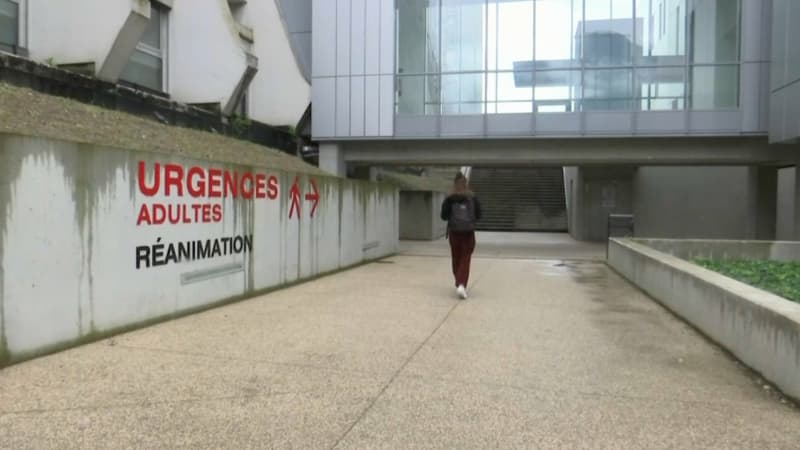The situation is untenable at the CHU Grenoble Alpes. On April 12, a 91-year-old man died in the corridors of the emergency department of the Isérois hospital center after waiting three days for a place in geriatrics. When he arrived at the establishment, his vital prognosis was not compromised, the doctors only evoked a state of confusion linked to his age.
This tragic disappearance is the third since December 2022 at the CHU. A 47-year-old woman died late last year in an emergency room. Shortly after, a second patient had lost his life within the walls of the facility. All these patients died “unexpectedly”, that is to say without presenting a vital emergency at the entrance.
“For this person (the nonagenarian, editor’s note), when he arrived at the emergency room there was no vital risk to his health. In any case, the stagnation in the emergency room of a person who does not have any health problem can, to a great extent, create it. ”, explains Sarah, a CHU nurse, to BFMTV.
Lack of staff
According to the unions, this situation is due to a serious lack of staff in the establishment, which has led to the gradual closure of 200 beds. “We would need at least 120 nurses and around forty nursing assistants to reopen beds,” Sara Fernandez, a traumatology nurse and general secretary of the CGT at CHU Grenoble Alpes, told BFMTV.
“If the situation is complicated in all services”, it is especially so in the ER: the service, rather calibrated for “55 people at a time”, shows averages of “80 patients, with peaks sometimes of 100 or 110 people”. . ,” she adds.
Of the four emergency services in the territory, two have been closed at night for a year and a half, after going through a “degraded” operation, which concentrated attention in Grenoble.
The service has “on average 142 tickets per 24 hours” and “70 to 90 patients are present at the same time within the service, including around 30 patients awaiting hospitalization”, with 50% of the emergency positions “vacant since more than a year and a half ago,” according to hospital management.
Especially affected psychiatric services
As a result of overcrowding in the emergency room of the CHU, the situation is very tense on the side of psychiatric emergencies. “The number of closed psychiatric beds in the rest of the territory is especially high” and among the patients currently awaiting emergency hospitalization, “40 or 50% belong to the psychiatric sector,” the CHU management also points out.
According to Dr. Marc Blancher, head of the CHU’s emergency service, the three disappeared patients had precisely in common that they suffered from psychiatric and gerontological disorders.
“What is dysfunctional is the organization of the emergency service. Psychiatric patients and the elderly with social problems, nobody wants to take care of them, nobody knows how to take care of them. They stay in the ER, and sometimes they die. in emergencies ”, is still progressing, on our antenna.
“If the problems are not resolved at the end of the month, the service will fall”, he still assures, who fears “a desertion” of the doctors, “very tired”.
Especially since the entry into force, at the beginning of April, of the Rist law, which puts a cap on the remuneration of interim doctors in hospitals, things have been complicated: with the withdrawal of temporary workers, “we are not able nor to reach the minimum public services”. ,” he said.
“Won’t be the last”
On April 10, to protest their working conditions, ER doctors brought, with their agreement, nine patients awaiting ER hospitalization to the hospital lobby. The hospital management “firmly” condemned this action while acknowledging the “serious difficulties of the emergency sector”, in an internal email that AFP was able to consult.
Before the death of the 91-year-old man, the unions had filed a complaint in early April for “endangering the lives of others”, closed without further action by the Grenoble prosecutor’s office.
“The report denounces the inaction of the public authorities that does not justify the opening of a criminal investigation and leads me to classify it without action to date due to the absence of criminal classification,” justified prosecutor Éric Vaillant.
During his speech last Monday, Emmanuel Macron referred to the hospital crisis and assured that he wanted to “relieve all our emergency services” by the end of 2024. A promise considered “impossible” by the medical profession.
In Grenoble, there are hardly any illusions about the sequence of events. “Unfortunately it is not the first and given the situation, it will not be the last,” concludes an emergency doctor.
Source: BFM TV


